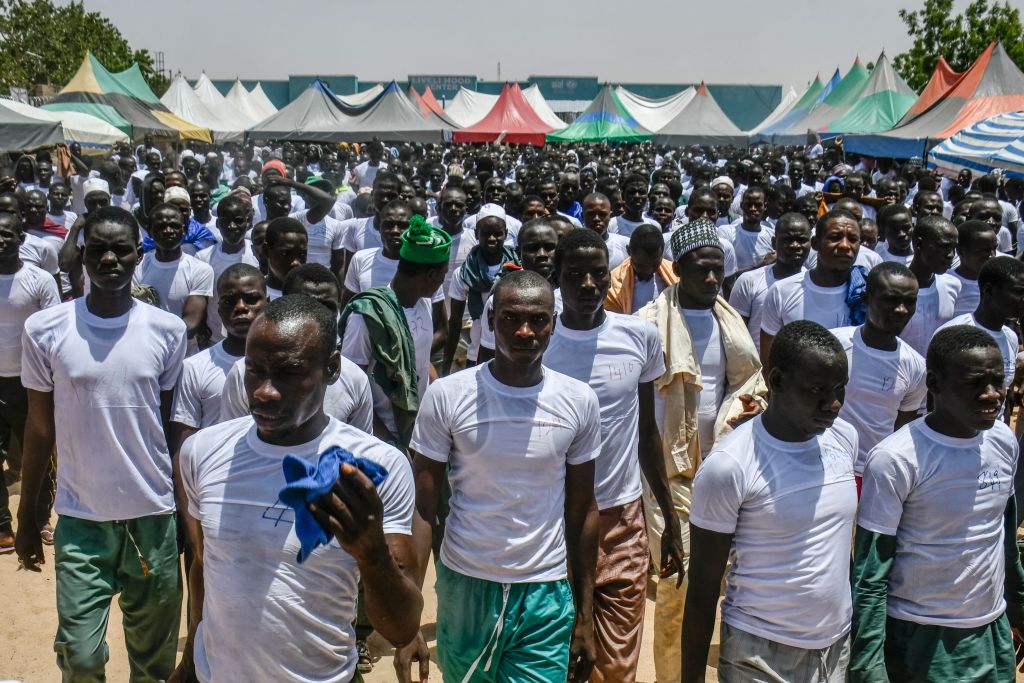In August, authorities in Niger claimed to have killed Bakura Doro, the leader of Boko Haram, in a drone strike on his headquarters on an island in Lake Chad. Boko Haram has denied Niger’s claim.
The attack on Doro’s headquarters came at a time when Nigeria’s oldest terrorist group appears to be reemerging after years of decline following fights over territory with its regional rival, the Islamic State West Africa Province (ISWAP). The fighting dramatically reduced Boko Haram’s presence in the region. In recent months, however, Boko Haram terrorists have carried out deadly attacks on communities in northeastern Nigeria and the northern tip of Cameroon. Writing for the Hudson Institute, analyst Michael Nwankpa has described the renewed presence of Boko Haram as “Boko Haram 2.0.”
In May, Boko Haram fighters killed 100 people in two communities in Nigeria’s Borno State because they were allegedly loyal to ISWAP. In August, Boko Haram fighters kidnapped 50 passengers from a Cameroonian bus traveling in the Diamaré department in the Far North Province. The passengers were held for ransom and eventually released. A few weeks later, in early September, Boko Haram fighters killed 60 people in Darul Jamal, a village in Nigeria’s Borno State. Residents told researchers with the Institute for Security Studies that the killers suspected their victims of sharing information with the Nigerian military.
Experts report that the Nigerian military’s recent campaign against Boko Haram has pushed the terrorists across the porous border with Cameroon, increasing the number of attacks in Far North Province’s Mayo-Moskota and Kolofata districts. A recent assessment by Institute researcher Silving Bo’es Guistei attributed 54 of 95 terrorist attacks in the region in September to Boko Haram.
“The security situation in the Far North of Cameroon is still worrying,” Guistei wrote in a LinkedIn post accompanying his report.
Writing recently in The Conversation, analyst Saheed Babajide Owonikoko of the Centre for Peace and Security Studies at Nigeria’s Modibbo Adama University of Technology attributed Boko Haram’s return to prominence to several factors, among them counterterrorism agencies’ intense focus on the more dominant ISWAP.
Doro’s low profile as the leader of Boko Haram following the death of Abubakar Shekau has also helped Boko Haram rebuild quietly around the Lake Chad Basin, Owonikoko wrote. Doro was the leader of Boko Haram’s Lake Chad region before taking control of the larger organization in 2022.
“He also shunned media propaganda, thus taking the public gaze away from Boko Haram while it grew unnoticed,” Owonikoko wrote.
The four nations sharing Lake Chad — Cameroon, Chad, Niger and Nigeria — created the Multinational Joint Task Force to fight terrorism in the region. Benin is also part of the task force, despite not bordering Lake Chad.
The task force was weakened when Chad withdrew its troops in January in response to a deadly Boko Haram attack on its soldiers on the island of Barkaram in 2024. Niger’s ruling junta pulled out in April. Relations between Cameroon and Nigeria have been strained by the violence spreading across their shared border.
Experts fear the revival of Boko Haram could draw back in some of the fighters who previously accepted amnesty and participated in reintegration programs run by the Nigerian and Borno State governments. Some of those former fighters have been recruited to fight their former Boko Haram comrades on behalf of the government.
Defeating Boko Haram will require the regional governments to retool their approach by addressing the underlying conditions driving terrorism, including the lack of state and local authority and economic investment, according to Nwankpa.
In many parts of the Lake Chad Basin, terrorist groups are performing the administrative duties usually performed by governments, Nwankpa wrote.
“Boko Haram and its factions thrive in these conditions,” he added. “The government can hasten Boko Haram’s demise by denying it popular support, particularly by improving the environmental and material conditions of the people while also ensuring security, an effort that will entail a military role for the foreseeable future.”

